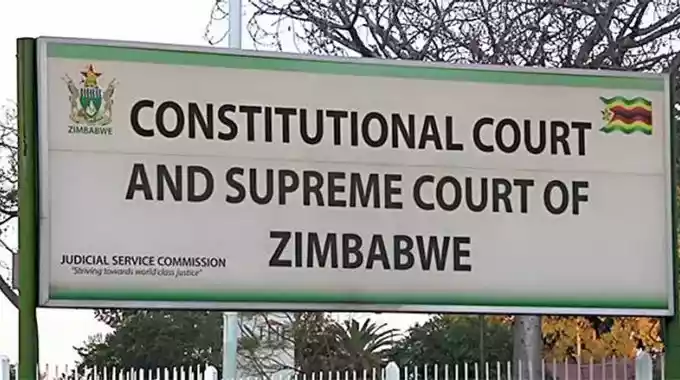The Constitutional Court has dismissed as “unfounded” and “devoid of any merit” an application by a man who accused prominent lawyer Advocate Thabani Mpofu of corruption and violating his rights to dignity and non-discrimination.
Joseph Richard Crnkovic, a dual Croatian and Zimbabwean citizen, had filed an application for direct access to the Constitutional Court. If his application was to be granted, he said, he would make another application with the court accusing Mpofu of breaching his constitutional rights and seeking US$300,000 in damages.
Justice Rita Makarau of the Constitutional Court ruled that the application was “unsustainable at law… and ought not to have been filed.”
Crnkovic told the Constitutional Court that he was employed as the group chief financial officer of a mining company and was also a board member of the company. When he made the present application, he was no longer employed. Circumstances which led to the termination of his employment prompted him to seek the Constitutional Court’s intervention.
The background to his dismissal was that employees of a subsidiary company approached their local Member of Parliament making allegations of racism against him and another executive of the company who was not before the court.
His employer, the court heard, advised him that he was to face a hearing to inquire into the allegations. He was told the hearing would be independent. In due course, Mpofu who was to preside over the hearing, formally invited him to the hearing.
In the letter of invitation to the hearing, Mpofu also advised Crnkovic of his right to be legally represented at the hearing. He then hired a lawyer who was also the lawyer of the subsidiary company in all its litigation as well as being its company secretary. The hearing was conducted over three days and he called a number of witnesses in his defence. No witnesses testified against him.
The allegations of racism had not been established at the hearing and Mpofu’s report exonerated Crnkovic. At some stage but after the hearing, Crnkovic was requested to process a payment to Mpofu for presiding over the hearing, which he duly did.
He now says he was not aware that Mpofu would be paid for presiding over his hearing. That he was supposed to pay him appeared improper to him and he viewed it as “corruption”, and as a payment for the violation of his constitutional rights to dignity and non-discrimination.
Crnkovic then filed a complaint with the Zimbabwe Anti-Corruption Commission as well as with the Law Society of Zimbabwe. Shortly after the presentation of the report, Crnkovic was asked to resign from his employment which he did.
Believing that his fundamental rights to human dignity and equality and non-discrimination were violated and continued to be violated by Mpofu, he made the application to the Constitutional Court. Crnkovic said the infringement arose when Mpofu tried him for the crime of racism and since then his name is now synonymous with racism. He said this was the reason cannot get any employment.
He also said his relationship with his family is no longer as warm as it used to be. The court heard that he exhausted his savings to the extent that he cannot afford legal fees hence his appearance in person before the court without a lawyer.
Mpofu through his lawyers argued that the application was “in its own class of frivolity, deserving censure.” Tafadzwa Lancelot Mapuranga, representing Mpofu, argued that the application did not disclose a constitutional matter. The lawyer also said that the applicant’s claim is for damages and ought to have been instituted in the High Court as an action.
Makarau concurred.
“The applicant’s matter suffers incurably from one or more faulty perceptions. These perceptions are all unsustainable at law and, with domino effect, render the application unfounded, and consequently, liable to be dismissed,” the judge ruled.
“The applicant wrongly perceives the inquiry held by the respondent as a wrongful act, actionable at law. Put differently, the applicant wrongly perceives the conduct of the respondent as violating his rights to human dignity and non-discrimination.
“Whilst the applicant subjectively feels and understandably so, that the matter should be resolved, the matter does not command the urgency envisioned by the rules of court in assessing the interests of justice. Being a dispute intra partes, it hardly has an impact on the public interest.”
The judge also said apart from establishing his own interests, Crnkovic did not show the constitutional relevance of the matter.
“His application was devoid of any merit and ought not to have been filed. However, in view of his status as a self-acting litigant, the court will bend over backwards and save him from an order of costs,” ruled Makarau.
Crnkovic is also in the courts fighting for the control of Glen Forest Memorial Park, a private cemetery in Harare.
Source Zimlive









